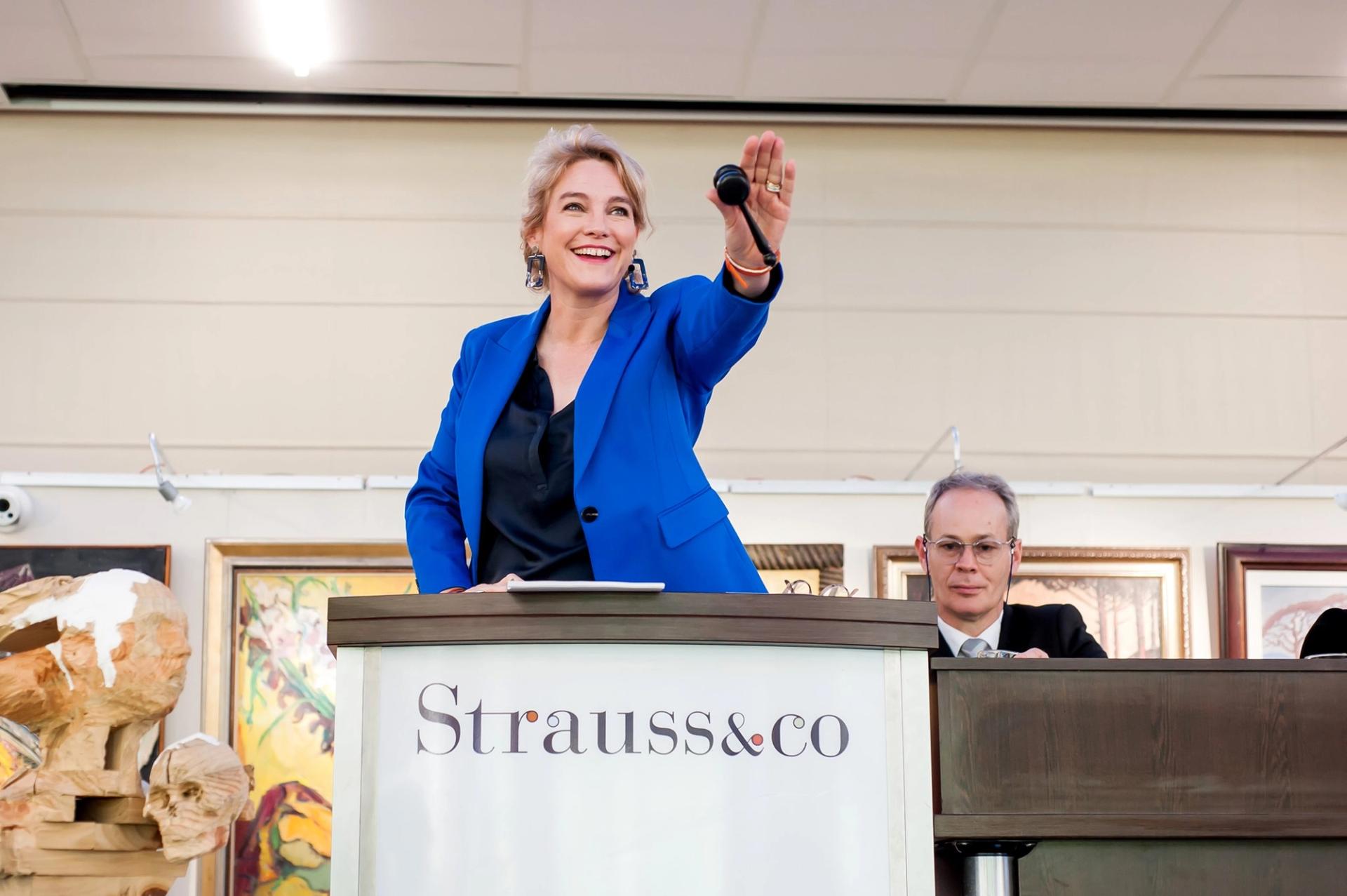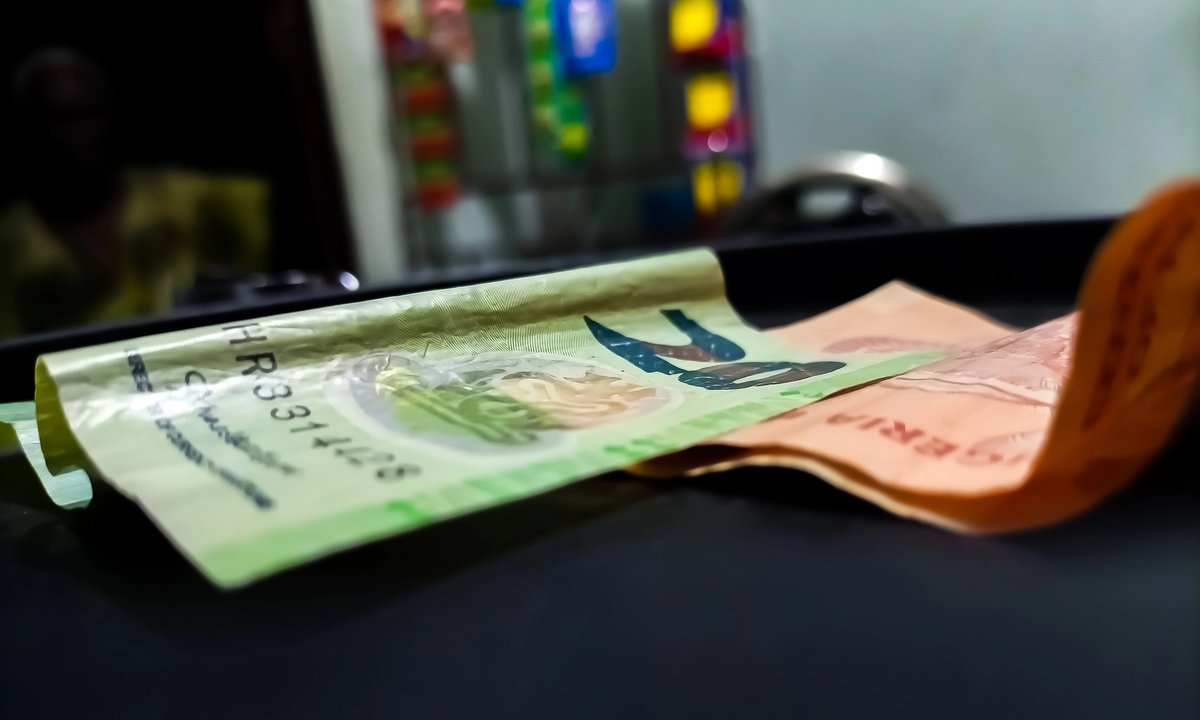A latest report revealed by the London-based artwork market analysis agency ArtTactic reveals that international public sale gross sales for Fashionable and modern African artwork contracted by 8.4% in 2023.
Gross sales of Fashionable and modern African artwork on the high three public sale homes—Christie’s, Sotheby’s and Phillips—fell by a mean of 16% in accordance with the funding and wealth administration agency Investec.
Sotheby’s noticed a drop in gross sales of 60.3% on this class—$3m in 2023, down from $7.5m in 2022. This decline slashed the public sale home’s market share by greater than half, from 22.1% in 2022 to 9.1% in 2023.
There to eat up among the losses had been the London-based Bonhams and Cape City’s Strauss & Co; the latter noticed its market share improve to 54.3% from 50.2%, whereas Bonhams’s share elevated to 33.5% from 25.2%. Regardless of this, Bonhams was the one public sale home within the report that noticed a rise in gross sales, from a complete of $8.9m in 2022 to $10.3m in 2022. Of the public sale homes analysed, the Lagos-based ArtHouse arguably fared the worst, with $0 value of gross sales reported in 2023.
African economies
When The Artwork Newspaper spoke to the founding father of ArtHouse, Kavita Chellaram, at Frieze London final 12 months, her gallery, Kó, was making its fourth look on the truthful with a solo present of the Nigerian Fashionable grasp Ben Enwonwu. When requested why she prefers for promote artwork in London, Chellaram cited the worsening naira which has solely fallen additional since. Certainly, this possible contributed to the shuttering of ArtHouse which ceased operations final 12 months.
In June of final 12 months, barely a month after the then newly elected President Bola Tinubu had assumed workplace, the choice was taken to finish the naira’s peg to the US greenback. With the reported 40% drop in worth that adopted, the naira skilled its largest single decline in historical past. Market volatility adopted: naira uncertainty quickly reached a degree whereby companies in Lagos started issuing invoices with three-to-five day home windows, says Ugoma Ebilah—founding father of the gallery Bloom Artwork. Certainly, many galleries in Lagos—together with her personal—started charging in {dollars}. “It was a troublesome choice as a result of I do know the risks,” she says.”The extra we dollarise [sic] our financial system, the more serious [the naira] will get”. At first the greenback development was “a little bit of a snooty factor amongst Lagos gallerists however it quickly turned a necessity”. Not least for gallerists in search of monetary stability. However for artists too who started petitioning for gallery fee within the US forex. “Every part the artists want: paints, canvases… are imported,” Ebilah explains.

Director and auctioneer, Susie Goodman; South Africa’s Strauss & Co. had a very robust 2023 © Strauss & Co.
Artwork Lagos X feels the crunch
Whereas gross sales with current collectors had been robust, she says, the gallery made a monetary choice to forgo town’s premiere artwork truthful final 12 months. Certainly, Artwork X Lagos noticed a dramatic fall in exhibitors in 2023: greater than 66%; from 31 galleries in 2022 to only 10 final 12 months. Absent from the occasion included many long-term supporters: Bloom, for instance, had been exhibiting on the truthful since its inaugural version in 2016. Ebilah says she is eager to return subsequent 12 months, nevertheless. “Charity begins at house,” she says, stressing the significance of a collaborative spirit throughout the nation’s artwork market. Certainly, her optimism in regards to the home Nigerian artwork market is buoyed by latest central financial institution coverage choices and subsequent naira restoration: “The Nigerian naira has reversed latest losses to turn into the world’s best-performing forex in latest weeks, lifted by two enormous rate of interest rises,” the Monetary Instances reviews.
Strauss & Co could have benefitted from the relative weak spot of the rand, nevertheless, says its govt chair, Frank Kilbourn. The public sale home is changing into extra worldwide, with patrons from 48 new nations final 12 months maybe profiting from a beneficial change charge. The public sale home just lately opened a everlasting base in London, with Kate Fellens, head of worldwide enterprise improvement, relocating to the UK capital metropolis from Brussels final 12 months. The UK base may supply a possibility for the agency to hedge towards macroeconomic instability within the nation which Kilbourn admits the agency is “not resistant to”.
On 6 February, the US-South Africa Bilateral Relations Evaluate Act was launched to congress. The invoice requires US President Joseph Biden to evaluate the US’s relationship with South Africa following the latter’s choice to deliver Israel to the Worldwide Court docket of Justice (ICJ) on accusations that it’s committing genocide towards Palestinians in Gaza. The invoice alleges that the African Nationwide Congress (ANC) has had ties with Hamas since 1994. South Africa’s Minister of Worldwide Relations and Cooperation, Naledi Pandor, just lately wrote an opinion piece within the Monetary Instances stating that it could be “devastating to… mutual financial pursuits if the invoice had been to break down bilateral relations”. Certainly this, together with the specter of removing from the African Development and Alternative Act (which grants South Africa “tariff free entry to the US marketplace for sure items”), would put additional strain of the financial system which has additionally suffered vital injury from the nation’s ongoing loadshedding disaster.
As well as, on a microeconomic stage, having a base in London permits Strauss to attach with its “established shopper base within the UK” in addition to bypassing the commerce rules that make the import of works from overseas into South Africa cumbersome.
Each Ebilah and Kilbourn stress that the subsequent section of bettering and stabilising the African artwork market is schooling and infrastructure. “We don’t have [public] museums… that is our actuality, we don’t have that authorities”, Ebilah says. Today, she spends quite a lot of her time educating artwork market gamers in Lagos. She just lately gave a chat to younger sellers: “look, not everybody is usually a gallerist: we’d like writers, curators, cataloguers.” She can also be within the means of beginning a basis that may help artists and organisations within the metropolis. Talking of a latest artwork intervention she made at Lagos Polo Membership—the place she commandeered a clean wall for a bit of artwork—she notes that establishing a mass visible tradition in Nigeria has turn into and can possible proceed to be the accountability of personal residents.
In keeping with Kilbourn, in South Africa, whereas there are a lot of individuals working in modern artwork, “what we wouldn’t have… is gallerists centered on the Fashionable facet”. He notes that most of the artists from the twentieth century are left to the public sale homes. Because of this money and time have to be invested by the agency in schooling; to this finish, numerous exhibitions run by the public sale home are non-selling together with latest exhibitions of works by Alfred Thoba and Sydney Kumalo and Ezrom Legae.
Each Ebilah and Kilbourn have spoken in regards to the elevated shunning of speculative practices as soon as widespread in African artwork shopping for (Ebilah on the eschewing of speculative patrons and Kilbourn on guidelines round promoting main works at public sale). Their assessments level in the direction of a maturation of the African artwork market that can possible be examined in 2024 because the continent’s largest economies look to get better.

